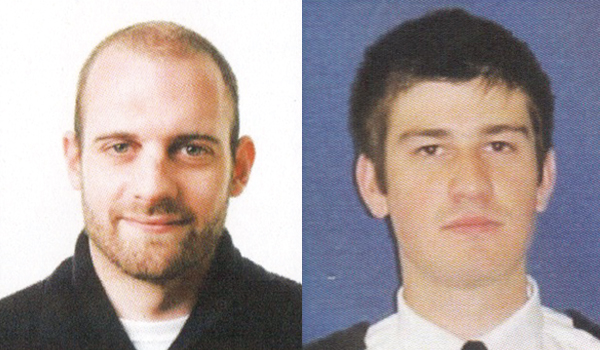Crime in the time of coronavirus
One unintended consequence of the Covid-19 pandemic across the country, and even further afield, has been an overall reduction in crime. While such a development will be welcome to those forces struggling to police the lockdown, studies suggest the effect may only be temporary.
Chief Constable Dave Thompson of West Midlands Police recently noted that his officers have been able to provide a “good service” to the public as they no longer have to police football matches or the night-time economy. And Dafydd Llywelyn, the police and crime commissioner (PCC) for Dyfed-Powys, said although five per cent of the police workforce was currently off sick as a result of the virus, those who remain have less crime to tackle.
In New York, arrests have fallen by 16 per cent since schools were closed on March 15. The number of murders has fallen by 85 per cent over the same period. Officers from the New York Police Department (NYPD) have also issued significantly fewer parking tickets and traffic violations as a result of the city being in lockdown.
NYPD Commissioner Dermot Shea said the public health crisis brought by coronavirus had been a powerful deterrent. “You see crowds disappearing on streets and other areas. That has translated to a decrease in crime,” he said.
The department had also seen a drop in all emergency calls throughout the city, with the exception of calls for service regarding sick patients, which had increased.
However, new research and evidence from forces overseas suggest this may be at best a short-term effect while society readjusts, and that the reduction is far from universal.
Less than 24 hours after Wiseman’s Bridge Inn, a popular pub near Saundersfoot, Pembrokshire, had closed its doors in line with government guidelines, the property was burgled.
CCTV footage captured two men breaking in, forcing open a small window with a crowbar. They left empty-handed – the owners had emptied all the cash from the tills and turned off the fridges after they shut down the pub – but the intruders still caused considerable damage to the premises.
Opportunist crimes such as the break-in at the Wiseman’s Bridge Inn appear to be on the increase. The National Police Chiefs’ Council (NPCC) has already noted a number of “worrying isolated incidents”, including the theft of oxygen canisters from a hospital, the puncturing of ambulance tyres and the raiding of food banks by thieves.
“Crisis like this bring out some of the best, but sadly also the worst, in humanity and there will be individuals who seek to exploit the pandemic,” a spokesperson for the NPCC said. “That’s why it’s essential the police have the resources and the powers to crack down on shameless, opportunistic crimes like this.”
Even in New York, where overall crime has fallen, car theft had increased in the past week by 51 per cent compared with the same period last year.
Increased gang violence
And there may be more to come. A report published on Monday (March 23) by the Policy Exchange think-tank warned that the coronavirus outbreak could result in increased gang violence in Britain as drug dealers compete over a shrinking market.
With bars and nightclubs closed, and most parties cancelled, there has been a dramatic fall in the market for cocaine and other drugs, which Policy Exchange says “may cause an increase in inter-gang rivalry faced with dwindling revenue streams, resulting in increased violence”.
School closures could also see street stabbings continue at a high rate, it added, and robbery could worsen if coronavirus forces police to do fewer patrols and stop and search operations.
Addressing Parliament on Monday, Home Secretary Priti Patel admitted that school closures could make children vulnerable to “County Lines” gangs, which use teenagers to transport and deal drugs.
Ms Patel said: “Children are not at school and they therefore could become prey to gangs and are equally more vulnerable, so we’re working with the police to make sure there’s greater work taking place on protecting young people.”
Social distancing restrictions may outlaw gatherings of more than two, but gang members are still likely to remain active and act in pairs or sometimes larger groups. The Policy Exchange report also warned that a reduction in neighbourhood policing “may embolden street gangs, increasing their sense of impunity. This will be exacerbated if courts are forced to close to slow the spread of the virus,” it added.
Richard Walton, a senior fellow at Policy Exchange and former Metropolitan Police Service officer, said: “The risk with an increase in gang violence over the comings months is that stabbings, in particular, so often require intensive care treatment. “Hospitals must be spared this extra strain on their resources as they cope with the peak of the coronavirus pandemic.”
The report also predicted an increase in domestic violence through quarantine and social distancing measures, as well as rising fraud, online scams and shoplifting.
Amid reports of burglars posing as NHS workers testing for coronavirus, Policy Exchange warned “distraction burglaries” were likely to become more common. But it added that other forms of crime may be reduced as a result of the outbreak, including disorderly behaviour and fights related to bars, pubs, nightclubs and restaurants.
The Policy Exchange report said if the ability to deal with anything other than the most serious crimes diminishes, it could “loosen temporarily the fabric of law and order in society”.
The report was released a day after the National Crime Agency (NCA) warned that organised crime groups and paedophiles may try to exploit the outbreak.
Investigators have found coronavirus-themed malicious apps and websites, as well as email phishing attacks, aimed at stealing personal and financial information. The NCA warned that with more children spending time online alone following school closures, there was also a risk of increased offending by paedophiles.
The long-term effects on the population as a whole may be even more stark, according to newly-published research by a leading economist, who has found that the kind of involuntary job loss that is likely to affect many as a result of the coronavirus pandemic can also cause a dramatic increase in criminal behaviour.
Causal link
The study, co-authored by Dr Mark Votruba, associate professor of economics in the Weatherhead School of Management at Case Western Reserve University, and published in the journal Labour Economics, is one of the first to establish a causal link between individual job loss and subsequent criminal activity.
“Layoffs lead to an increase of criminal charges against displaced workers, while also decreasing their future earnings and full-time opportunities,” said Dr Votruba.
One important mechanism behind this appears to be the disruptive effect of job loss on daily schedules. For both violent crimes and drug/alcohol-related crimes, the charge rates increased much more on weekdays than at weekends.
“The old adage that idle hands are the devil’s workshop appears to have some truth to it,” said Dr Votruba. “This unfortunate link (to weekday crimes) highlights the importance of psychological factors – such as mental distress, self-control, financial concerns and frustration – in determining counter-productive behaviour.”
The research was based on data from more than one million Norwegian workers, age 18 to 40, of whom nearly 84,000 experienced an involuntary job loss over the period of analysis. The report authors chose Norway because few other countries maintain records linking criminal and unemployment activity.
According to the study, workers who were let go through no fault of their own experienced:
- a 60 per cent jump in property crimes charges in the year after a downsizing;
- a decrease in earnings by ten to 15 per cent in the immediate years following displacement;
- a substantial increase in the likelihood of remaining unemployed or working less than full-time;
- an overall 20 per cent increase in criminal-charge rates in the year after a layoff; and
- a dramatic increase in non-property crimes – violent and serious traffic offences and drug/alcohol-related acts – committed on weekdays.
“The criminal response is not just about workers’ replacing lost income. These results suggest other important factors are at work, including the psychological effects of job loss,” said Dr Votruba.
Although the research did not look directly at the effect of having millions of people stuck at home due to a pandemic, its key findings that the combination of frustration, need and free time mix together to increase crime rates when people are out of work could be of relevance for some.
One factor is that Norway’s social services system provides a greater safety net than most other countries for people who lose their jobs, meaning the impact of facing unemployment there is significantly less than for many elsewhere.





